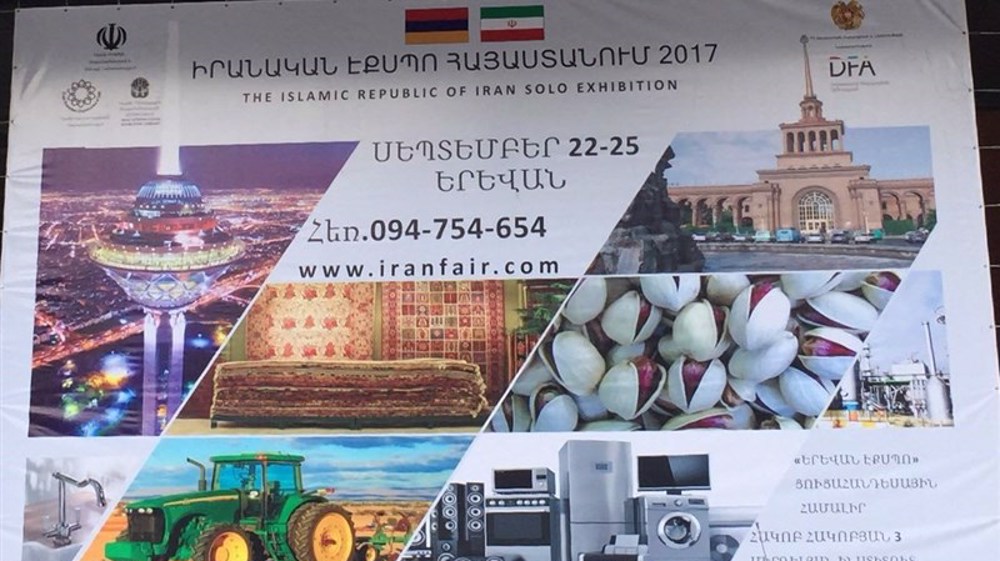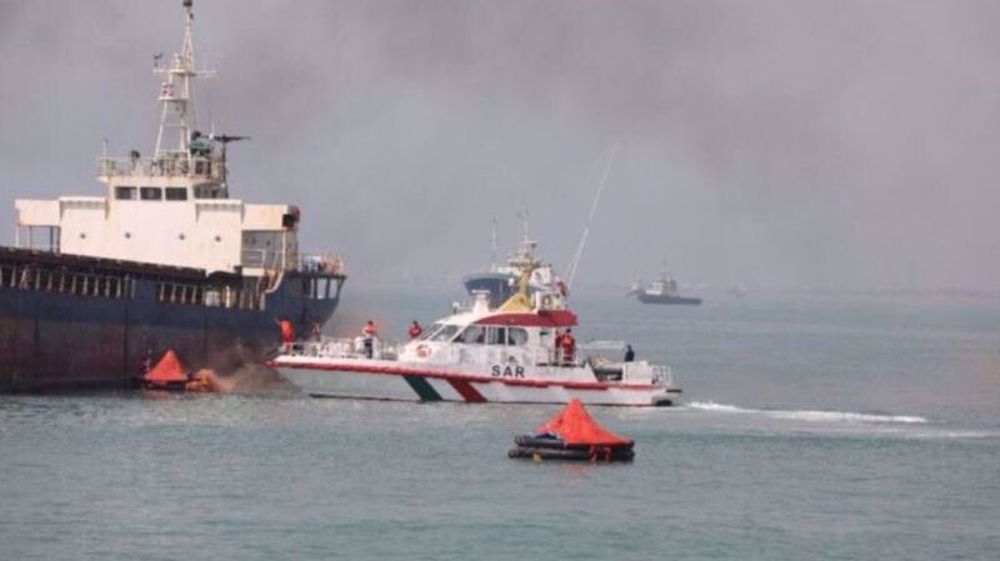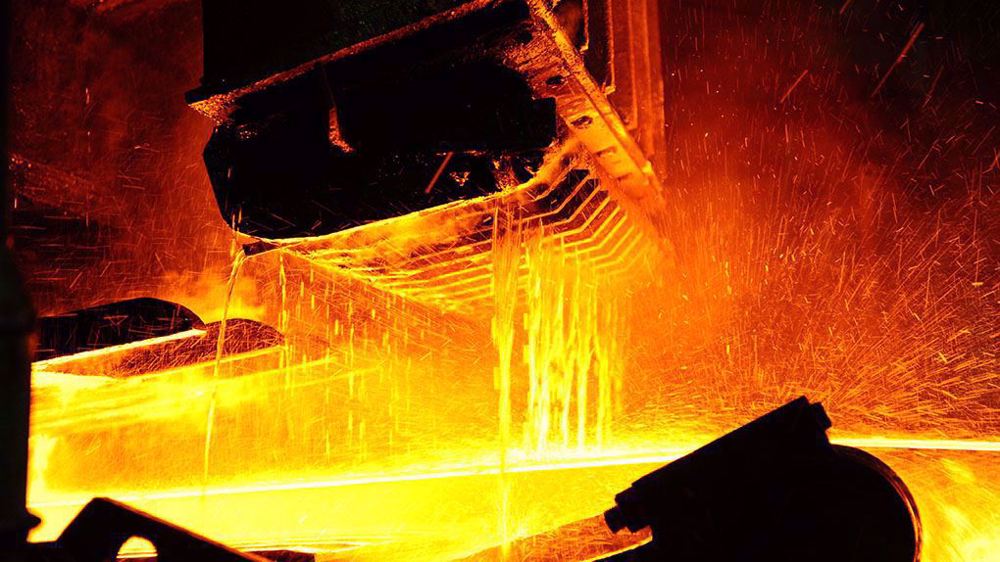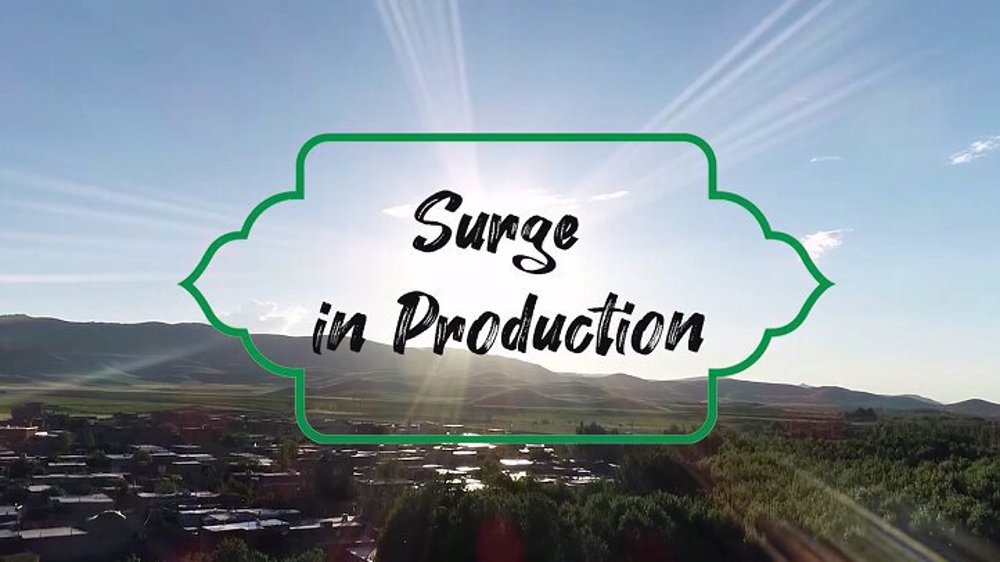Minister of industry: Iran to deepen trade ties with Armenia via joint ventures
Iran's Minister of Industry, Mine and Trade Reza Fatemi-Amin says his visit to Armenia is aimed at expanding bilateral trade ties between the two neighboring countries via joint investment projects.
“This visit is focused on deepening ties between Iran and Armenia via joint ventures," said Fatemi-Amin upon his arrival in the Armenian capital of Yerevan on Thursday.
The Iranian minister is heading a high-ranking delegation, including trade officials and CEOs of private companies. This is the first visit to Armenia by high-ranking Iranian officials since President Ebrahim Raeisi took office back in August 2021.
Expanding trade diplomacy with regional states tops the agenda of the new Iranian administration. Fatemi-Amin has already made several trips to the Persian Gulf states of the United Arab Emirates, Qatar and Oman to boost bilateral trade relations.
Important trade partner
The Iranian minister also described Armenia as an important trade partner whose economy complements that of Iran’s.
“Armenia as a member state of the Eurasian Economic Union and a neighboring country of Iran is of great significance. The economies of Iran and Armenia are complementary. We can export technology in many industrial sectors to Armenia and import our required industrial know-how from Armenia,” said the Iranian minister.
The Republic of Armenia is a landlocked country located in northwestern Iran and the two countries share a 44-kilometer border.
Trade relations between Iran and Armenia have dramatically expanded after Iran signed a Free Trade Agreement with the Eurasian Economic Union (EAEU) in October 2019.
Under the three-year preferential trade deal, EAEU and Tehran are obliged to accept the conditions for achieving a full free trade plan for tariff-free essential commodities.
Armenia, Belarus, Kazakhstan, Kyrgyzstan, and Russia are the member states of EAEU.
Platform for export
“Iranian companies, including those manufacturing home appliances as well as food industries, can invest in Armenia to produce and export their products to other countries. We will also invite some Armenian companies to invest in Iran during the meeting with high-ranking Armenian officials.” Fatemi-Amin noted.
Given its relatively low trade tariffs (4%) with North American countries like Canada, Armenia can serve as a platform facilitating the export of Iranian products to such markets.
The value of Iran-Armenia trade volume stood at $304 million during the last Persian calendar year starting from March 21, 2020 to March 20, 2021, with both sides planning to beef up bilateral trade.
During his two-day visit to Armenia, the Iranian minister is to meet top officials, among them the Armenian minister of economy, the deputy prime minister as well as head of Armenia’s central bank.
Implementation of trade agreements, facilitating trade between Iranian and Armenian private sectors, cooperation in free zones, commodity trade, transportation and customs are among the economic issues to be discussed in the meetings between Iranian officials and Armenian counterparts.
Last September, Raeisi met with Armenian Prime Minister Nikol Pashinyan in Tajikistan's capital Dushanbe where Iran was accepted as the new member of the Eurasian political, economic, and security alliance.
In their meeting, they stressed the need for increasing the current level of economic relations between the two neighbors.
Armenia can potentially serve as a transit route for Iranian goods, technology as well as machinery, technical and engineering services to Russia and even to European countries.
According to General Manager of Iran's Road Maintenance and Transportation Organization Javad Hedayati, Iran's main transit route to Europe is through Turkey and Azerbaijan, but Armenia is still important as an alternative in case a problem arises with the two corridors.
The problem with the Armenia route is that it is extremely mountainous and difficult to pass, especially in winter, when trucks have to travel 400 km sometimes in three days, according to Hedayati.
In November, Iran and Georgia agreed to accelerate the finalization of a corridor linking the Persian Gulf to the Black Sea.
Israeli airstrike kills at least 7 people in Rafah
VIDEO | Iranians hold nationwide demos in support of IRGC
Syria condemns US veto of Palestine UN membership resolution
Iraqi resistance forces hit Israeli Ovda air base
Hackers break into Israeli military’s computers, access trove of documents
Tulkarm Brigade commander killed by Israeli forces in raid on refugee camp
Zionist media desperately trying to turn Israeli defeat into victory: Iran
VIDEO | Press TV's news headlines










 This makes it easy to access the Press TV website
This makes it easy to access the Press TV website